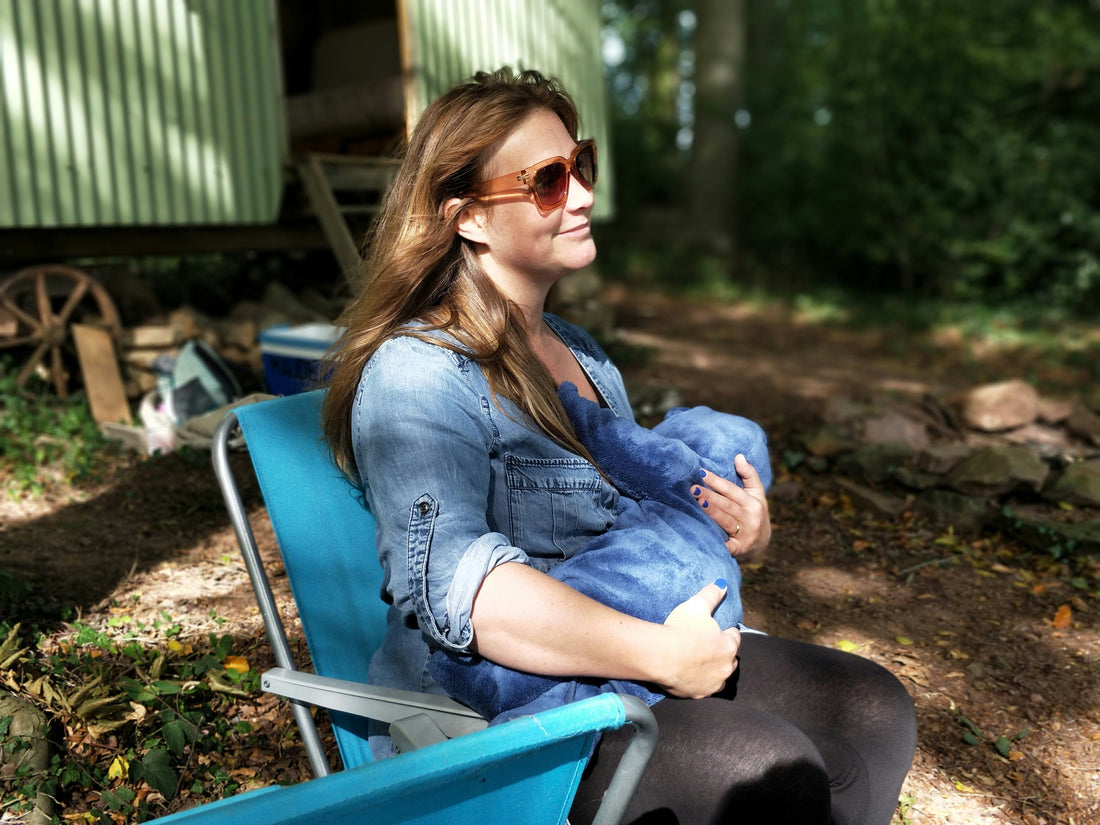
Why Bother with Breastfeeding- Understanding the Benefits of Breastfeeding for Mother and Baby
Share
Some topics covered include: breastfeeding advantages, breastfeeding benefits, maternal health, infant nutrition, bonding through breastfeeding
There's so many reasons why. And if you're trying to breastfeed and it's incredibly challenging, just know you're not alone and the fight is worth it. It took me at least 6 weeks to get the hang of it and there was a lot of pain in the process, but after 17 months of breastfeeding the perseverance paid off and the rewards were worth it.
Let's start with the science behind it, which is INCREDIBLE! It really is such a miracle how it all works.
HORMONES
The bonding chemicals that happen between your newborn and yourself. As your baby breastfeeds, your body produces oxytocin, the happy hormone. First of all, oxytocin triggers the milk ejection reflex, also known as “let-down.” Some mums actually feel the milk letdown happening as the cells around your milk glands contract and squeeze the milk out. Oxytocin, released during breastfeeding or expressing, also helps the uterus contract and return to its normal size and shape.
Finally, oxytocin is considered a socializing hormone that helps us form relationships with others. It will help create a powerful bond between you and baby.
Oxytocin is produced by both mum and baby and is further transferred to baby in mum’s breastmilk. It is stimulated by either breastfeeding or expressing and skin-to-skin contact.
Oxytocin is also produced in dads when they play with their baby and have skin-to-skin contact and helps dad bond with baby too.
OVERALL HEALTH
It is safe, clean and contains antibodies which help protect against many common childhood illnesses. Breastmilk provides all the energy and nutrients that the infant needs. Breastfed children perform better on intelligence tests, are less likely to be overweight or obese and less prone to diabetes later in life. Women who breastfeed also have a reduced risk of breast and ovarian cancers.
-
Compared with formula, the nutrients in breastmilk are better absorbed and used by your baby. These include sugar (carbohydrate) and protein.
-
Breastmilk has the nutrients that are best for your baby’s brain growth and nervous system development. Studies of breastfed babies have found that they do better on intelligence tests when they grow older.
-
A breastfed baby's eyes also work better. This is mostly because of certain types of fat in breastmilk.
PREVENTING INFECTIONS
Breastmilk has many disease-fighting factors. It helps prevent mild to severe infections and hospitalization.
-
Breastfed babies have far fewer digestive, lung, and ear infections.
-
Babies born early (premature) who are breastfed are also less likely to get a serious infection of the intestines called NEC (necrotizing enterocolitis).
-
If your baby gets an infection when breastfeeding, the infection is likely to be less severe.
-
A lower risk for SIDS (sudden infant death syndrome) than babies who are not breastfed.
-
A lower risk of getting asthma and skin problems related to allergies. Formula-fed babies are more likely to have milk allergies.
-
Less diarrhea and a lowered chance of getting some digestive conditions. Formula can actually change healthy bacteria in a baby's intestines. The bacteria help with digestion and fighting disease.
-
A lower risk of developing leukemia.
- Baby backwash can trigger immune responses in milk. When the baby suckles, some of their saliva gets pulled back into the nipple and can travel into the milk ducts. The backwash informs the mammary gland about the infant's health.
MADE SPECIALLY FOR YOUR BABY
Scientists have found that the milk the mothers produce can vary in content and quantity depending on the baby's gender. Breast milk for baby boys is richer in fat and protein. It contains 2.8% fat compared to 1.74% fat for baby girls. Girls tend to take in more milk and feed longer than boys.
CONVENIENCE
Most people don't want to be woken up in the middle of the night, but if you're going to be you want it to be quick and done before you've started. When using bottles your baby more than likely will work their way up to a full scream by the time it's ready, nursing is immediate satisfaction. The ease of just lying next to your baby and nursing on your side or sitting in a chair for 15min while they get their drink on and then crawling back into bed. In the first year of my babies life we moved and it was so convenient to always have it immediately ready as we lived in our new house while we renovated it. Not having to worry about having all the things setup and ready and keeping all the bottles sanitary was so nice while moving and travelling.
Either way the decision is yours, but if it has been a painful journey don't give up. I get, it was painful for a long time for me with the use of nipple shields and pumping to endure while I figured it out. It will be worth it, and ultimately it is what's best for your babies health.
citations: https://resources.beststart.org/product/b04e-breastfeeding-matters-book/
https://www.sciencedirect.com/science/article/abs/pii/S0889157523004519
